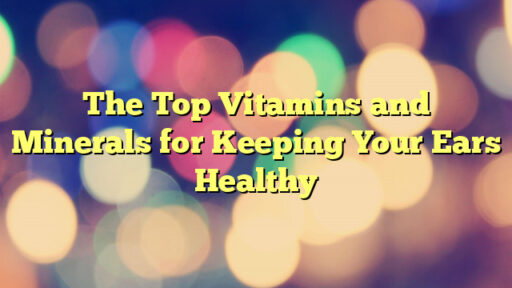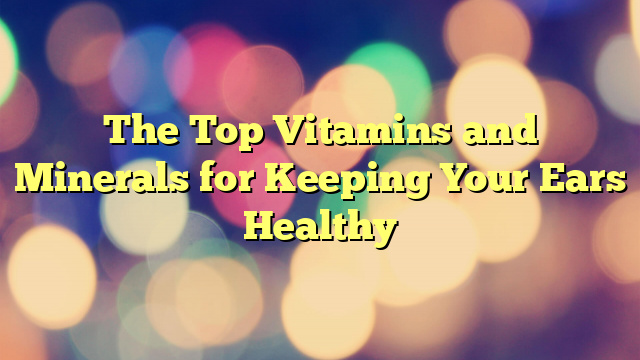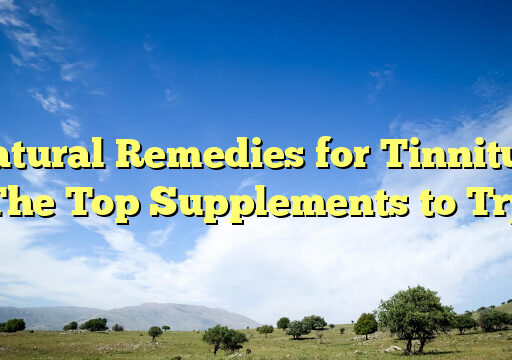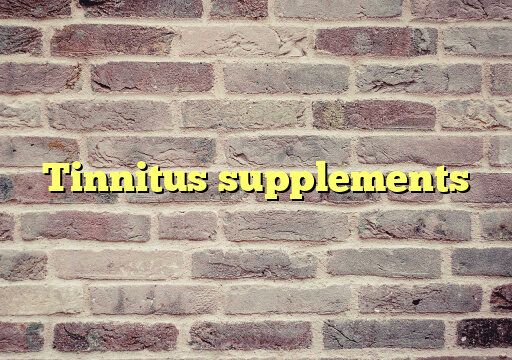When it comes to maintaining good overall health, taking care of your ears is just as important as any other part of your body. In addition to protecting your ears from loud noises and infections, it's essential to ensure that you are getting the right vitamins and minerals to support ear health. Here are some of the top nutrients you should include in your diet to keep your ears in top shape:
Vitamin A
Vitamin A is crucial for maintaining the health of the mucous membranes in the ear canal. It also plays a role in reducing the risk of ear infections and maintaining proper ear function. Foods rich in vitamin A include carrots, sweet potatoes, spinach, and liver.
Vitamin C
As a powerful antioxidant, vitamin C helps to protect the delicate structures of the inner ear from damage caused by free radicals. It also supports the immune system, which can help prevent ear infections. Good sources of vitamin C include oranges, strawberries, bell peppers, and broccoli.
Vitamin E
Vitamin E is another important antioxidant that can help protect the ear cells from oxidative stress. It also supports blood circulation to the ear, which is essential for maintaining optimal ear health. Nuts, seeds, and leafy greens are excellent sources of vitamin E.
Magnesium
Magnesium plays a vital role in supporting the function of the hair cells in the inner ear, which are responsible for converting sound vibrations into electrical signals that the brain can interpret. A deficiency in magnesium can lead to hearing loss and tinnitus. Good sources of magnesium include nuts, seeds, legumes, and whole grains.
Zinc
Zinc is essential for maintaining a healthy immune system and combating inflammation, both of which are essential for preventing ear infections. It also plays a role in the synthesis of proteins needed for proper ear function. Foods rich in zinc include oysters, red meat, poultry, and beans.
Conclusion
By incorporating these essential vitamins and minerals into your diet, you can help to protect your ears from damage and maintain optimal ear health. In addition to eating a balanced diet, make sure to protect your ears from loud noises and practice good hygiene to reduce the risk of infections. If you experience any changes in your hearing or ear health, it's essential to consult with a healthcare professional for a proper diagnosis and treatment.
FAQs
1. Can vitamin supplements help improve ear health?
Yes, vitamin supplements can be beneficial for supporting ear health, especially if you have a deficiency in certain nutrients. However, it's always best to try to get your vitamins and minerals from whole foods whenever possible.
2. Are there any vitamins or minerals that can worsen ear health?
In some cases, excessive amounts of certain vitamins or minerals, such as vitamin A or iron, can have negative effects on ear health. It's essential to consult with a healthcare professional before taking any supplements to ensure that you are not overdosing on any nutrients.
3. How can I protect my ears from damage?
Avoiding exposure to loud noises, using ear protection when necessary, and practicing good hygiene can all help to protect your ears from damage and reduce the risk of hearing loss and infections.
Unlock the Secret to a Peaceful Life




